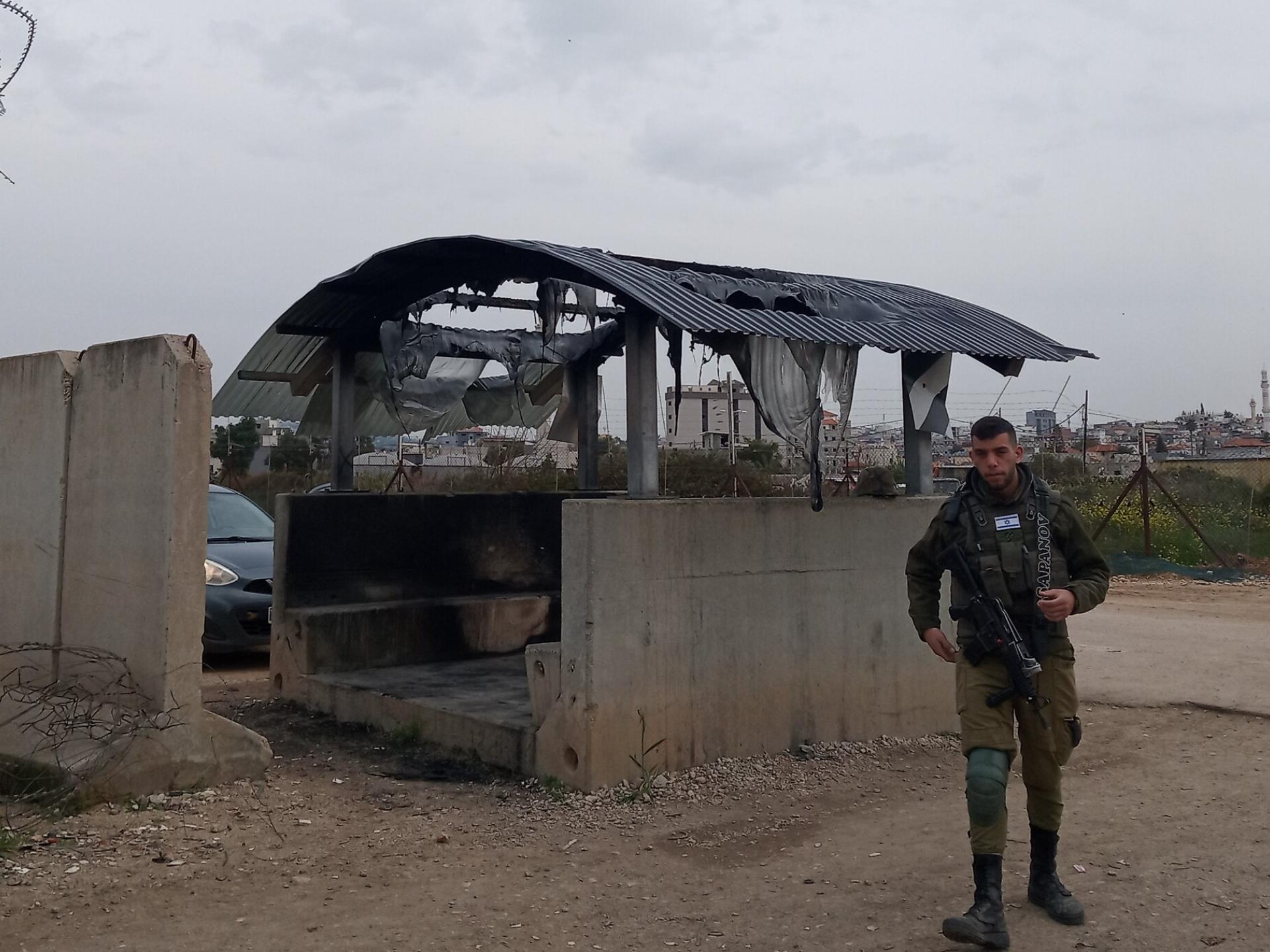Habla – the tragic complexity of a Palestinian Israeli citizen
The checkpoint is open only briefly.
The official opening time is 13:30. We arrived at 13:03. Cars are unable to go through in either direction until the soldiers arrive. Cars already wait to exit from Habla, and to enter Habla. Cars with Israeli license plates wait for people exiting Habla on foot.
Unlike the cars, people on foot cross freely through the gap. People say there are additional gaps allowing people to go through. The soldiers arrive at 13:20 and open the gate at 13:34. A man who arrived to go through is told by the solder to wait until the soldier reaches the inspection booth.
After crossing became unimpeded the inspection booth was burned down.
13:40 Cars finished going through.
13:44 The soldiers lock the gate and leave.
During our shift we spoke to an Israeli citizen, a resident of one of the nearby towns. His words exemplify the tragic complexities of a Palestinian citizen of Israel. Initially he expresses a degree of support for the existence of the checkpoint, for security reasons, and in fact Israel captured the area in ’67. But, later, he admits the absurdity of his situation. He married a second wife, a resident of the occupied territories, but Israeli law forbids polygamy. They have two young children. He had connections that enabled him to register them as Israeli citizens. After his wife fell ill with cancer she moved back to the occupied territories to be near her family of origin. Their children live with him, are in school and cared for by his first wife. They visit their mother, the second wife, on weekends. He comes to the checkpoint to drive people leaving Habla into Israel. But only those with permits.

